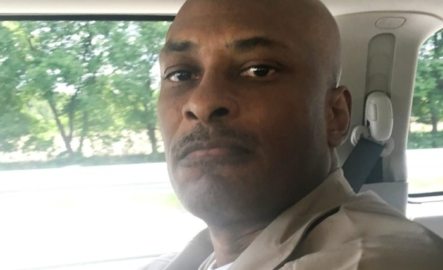Today, Africans join Americans in commemorating the federal holiday of the great civil rights activist, Dr. Martin Luther King Jr.
Dr. King Jr. was not knowledgeable of the African plight at the time, but he was acutely aware of the fact that the African independence struggles against European colonialism was inherently similar to the Civil Rights Movement against racism he led in the United States in the 1950s and 60s.
Records show that not only did King form strategic alliances with African leaders, but he consistently advocated for the cause of these African nations through the political power of African Americans in the U.S.
Below are a few noted examples of how he did so:
1. In 1957, Dr. King Jr. and his wife Coretta Scott King travelled to Accra, Ghana to celebrate the country’s independence from British rule. Revered by African leaders for his work in the Civil Rights Movements, King Jr. responded to a personal invitation from Ghana’s new Prime Minister Kwame Nkrumah to attend the country’s independence celebrations.
While in Ghana, Dr. King Jr. told then U.S. Vice President, Richard Nixon, who was also in attendance at the event’s festivities: “I want you to come visit us down in Alabama where we are seeking the same kind of freedom the Gold Coast is celebrating”.
Dr. King Jr. also returned from his trip deeply inspired about the Pan-African movement and penned a sermon called “Birth of a New Nation”. In it, he educated others, especially African Americans in the Civil Rights Movement, about Africa, then largely known as the “Dark Continent”. He highlighted various countries across the continent, including Egypt, Ethiopia, South Africa, Uganda, Nigeria, Liberia, Kenya, and Ghana and their plight. He used Ghana’s story to remind his brethren of the cost of freedom:
“Ghana reminds us that freedom never comes on a silver platter. It’s never easy…Ghana reminds us of that. You better get ready to go to prison. When I looked out and saw the prime minister there with his prison cap on that night, that reminded me of that fact, that freedom never comes easy. It comes through hard labor and it comes through toil. It comes through hours of despair and disappointment.”
2. In previously unreleased documents, it was discovered that Dr. King Jr. traveled to West Africa in 1960, this time, to attend the Inauguration of Nigeria’s Nnamdi Azikiwe in Lagos. He said the following about his trip to Nigeria:
“I just returned from Africa a little more than a month ago and I had the opportunity to talk to most of the major leaders of the new independent countries of Africa and also leaders of countries that are moving toward independence. They are familiar with it and they are saying in no uncertain terms that racism and colonialism must go for they see the two are as based on the same principle, a sort of contempt for life, and a contempt for human personality.”
3. Finally, Dr. King Jr. was adamant about the importance of U.S.’s political action in the success of South Africa’s anti-apartheid movement. En route to Oslo to receive the Nobel Peace Prize as the youngest person to receive such an award, King made this speech about South Africa in London in December 1964:
“If the United Kingdom and the United States decided tomorrow morning not to buy South African goods, not to buy South African gold, to put an embargo on oil; if our investors and capitalists would withdraw their support for that racial tyranny, then apartheid would be brought to an end. Then the majority of South Africans of all races could at last build the shared society they desire.
Though we in the civil rights movement still have a long and difficult struggle in our own country, increasingly we are recognising our power as voters; already we have made our feelings clear to the President; increasingly we intend to influence American policy in the United Nations and towards South Africa.”
Dr. King Jr. made tremendous strides in the cause for the civil rights of Africans, and today, Africans join in celebrating not only his achievements there but the impact of his voice, example, and legacy on the independence struggle in Africa and on successive generations here since.










